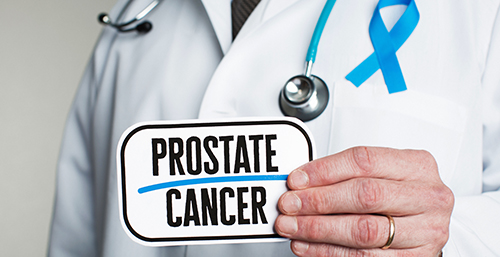
 Dr. Sabry Mansour
Dr. Sabry Mansour
Urology
Q. Should I be screened for prostate cancer?
A. If you are a man, you should talk with your doctor about whether prostate cancer screening is right for you. There is no unanimous opinion in the medical community regarding the benefits of prostate cancer screening. However, those who advocate for regular screenings believe that treating prostate cancer sooner rather than later gives men more treatment options and yields potentially fewer side effects.
Q. When should I start, and stop being screened for prostate cancer?
A. When screening begins is generally based on individual risk, with age 40 being a reasonable time to start screening for those at highest risk (including men with genetic predispositions and with strong family histories of prostate cancer at a young age). For otherwise healthy men at high risk, including African-American men and men who have had a first-degree relative (father, brother or son) diagnosed with prostate cancer at an early age, a reasonable age range to begin screening is 40-45. For men at average risk, the guidelines vary. While some recommend an initial screening at age 40, others recommend starting at age 50. When to stop screening is a topic of some debate, too. Some groups propose 80 as a reasonable stopping age while others suggest it should be an individual decision made in consultation with a physician.
Q. What happens during a prostate screening?
A. It's common for a prostate cancer screening to include two important tests: the prostate-specific antigen (PSA) blood test and the digital rectal exam (DRE).
Q. What is the PSA blood test?
A. The PSA blood test gauges levels of prostate-specific antigen, a substance produced by cells in the prostate. Most healthy men have levels under 4 nanograms per milliliter (ng/mL) of blood. Generally speaking, the chance for prostate cancer increases as the PSA level increases. When prostate cancer develops, the PSA level usually registers higher than 4 ng/mL; however, a level below this amount does not necessarily mean that cancer isn't present. Men with PSA levels in the borderline range between 4 and 10 ng/mL have about a 25 percent chance of having prostate cancer. If the PSA reading is higher than 10 ng/mL, the risk of prostate cancer jumps to more than 50 percent.
Q. What is the DRE?
A. The digital rectal exam is a relatively simple physical exam, which involves your physician examining your prostate through an internal examination. With this exam, the doctor inserts a gloved, lubricated finger into the rectum to gauge the size of the prostate and to feel for any lumps or other abnormalities.